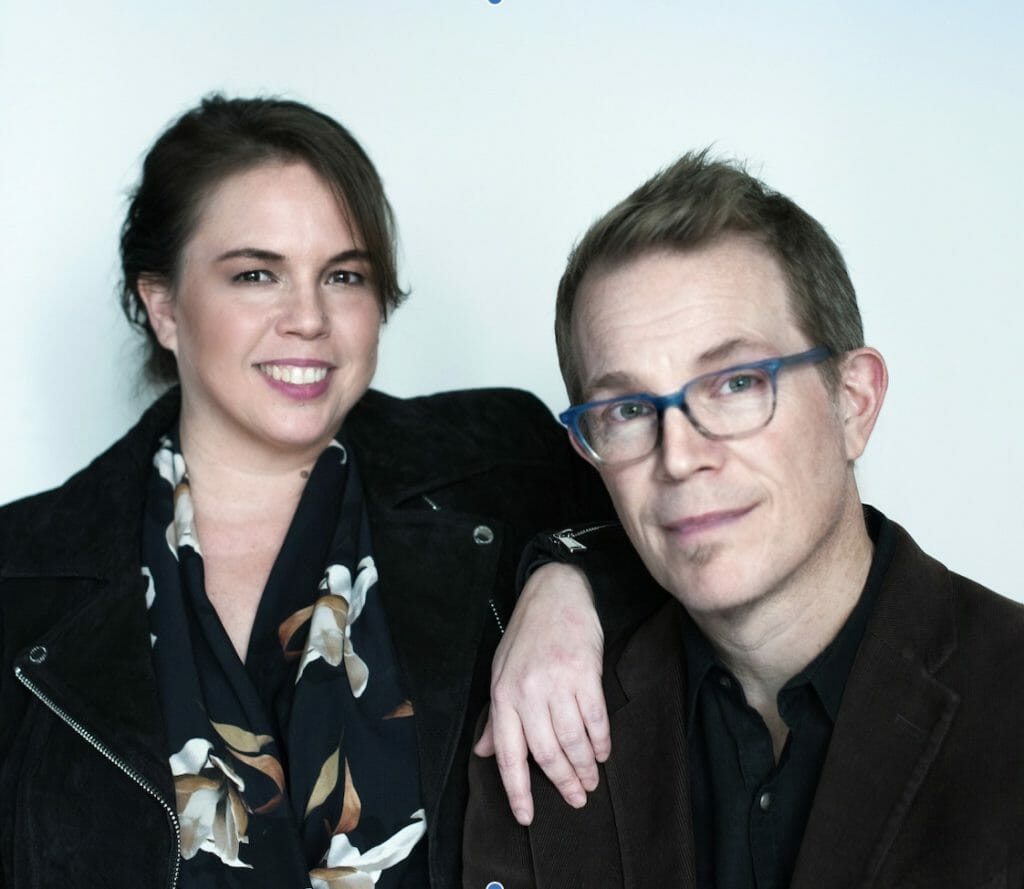
The prompter is a hidden, but critical, member of the opera that reminds actors of their lines. Today, Andy Tubman, his sister Rachel Francine and the team at SingFit are working to put the opera prompter in a musical smartphone application for home care professionals and assisted living communities.
Its newest iteration, SingFit STUDIO Caregiver, functions like a karaoke machine with one small twist: there’s a prompter reminding the patient of the lyrics as the song plays. The execution of the program is straightforward; caregivers follow the step-by-step instructions from the application while the patient simply sings along.
From opera to app
When asked to discuss the impact of music in his life, Tubman describes it as “a determinant for pretty much for basically everything that I do.” Raised by an opera singer father, Lou Tubman, Tubman and Francine were immersed in the world of music from an early age. But a simple twist of fate in an ICU unit as a young person introduced him to a new application for his craft.
“One of my best friends from high school got in a car accident right before college and went into a coma. I brought guitar playing skills into the ICU unit,” Tubman said. “Eventually, after going through quite a roller coaster about three months later, he came out of the coma mouthing the words to the song that I was playing.”
The song Tubman strummed out on his guitar? “Wish You Were Here” by Pink Floyd.
Soon after, he was approached by a nurse who introduced him to the hospital’s music therapist. After the meeting, Tubman auditioned and enrolled in Temple University’s renowned music therapy program. Then, recalling his own memories with his father’s opera career, he reached out to his sister with his idea for a new product.
“My dad wanted the opera prompter in the car with him. But this was the ‘60s; the cassette tape had just been invented,” Francine said. “When Andy was in school for music therapy, he called me one day and said, ‘Hey, Rach, you know, that lyric-prompting idea of Dad’s? It’s an evidence-based music therapy practice used for everything from restoring speech after traumatic brain injury to helping elevate the neuro chemicals like serotonin and dopamine for people with dementia, or mental health disorders. That was really the genesis of it.”
Robust program
Once modern technology caught up to Lou Tubman’s idea, SingFit began to blossom. Today, the company offers three different products: SingFIt STUDIO Caregiver, SingFit PRIME and SingFit STUDIO Pro. What seems to be a simple sing-along is actually a series of stimulating brain activities.
“It can work both for short-term and long-term care. Singing is very engaging for the brain globally. We’re providing this active music making process, which is typically challenging in terms of how accessible that is,” Tubman said. “So we’re providing that process for people. In the short term, it immediately normalizes and humanizes the environment, as well as builds rapport between the people that are doing it.”
Tubman talked about the benefits of singing, from elevating mood to strengthening singing muscles, improving speech to helping with respiration and oxygenation. With over 600 songs in the SingFit catalog, patients have no shortage of tunes to croon. But according to Tubman, the most effective song choices come from the heart.
“Music that has emotional attachment for that person used in the right way is going to be most effective for the engagement process,” Tubman said. “And so what that engagement process then yields can be anything from improving behaviors, to motor planning of a walking gait or others. So it just depends on how you’re applying it. But preferred music from the client side is always more effective if you can use that if possible.”
While it is not as frequently practiced in the United States, music therapy likely will be playing a more prominent role in American healthcare in the future, Francine said. In fact, it’s already covered by the National Health Service in the U.K.
“What we really see is therapeutic music being integrated into the healthcare system overall as the Affordable Care Act comes into play,” Francine said. “There’s an act in there to reduce the amount of medication that we’re giving, especially to older people. The problem is, there aren’t a lot of solutions out there that are non-pharmacological that actually fix these problems. And so this can be repeated, not just for older adults … All sorts of different people can use singing as a therapeutic tool.”
Home Sweet Home is a feature appearing Mondays in McKnight’s Home Care Daily Pulse. The story focuses on a heartwarming, entertaining or quirky happening affecting the world of home care. If you have a topic that might be worthy of the spotlight in Home Sweet Home, please email Liza Berger at [email protected].

